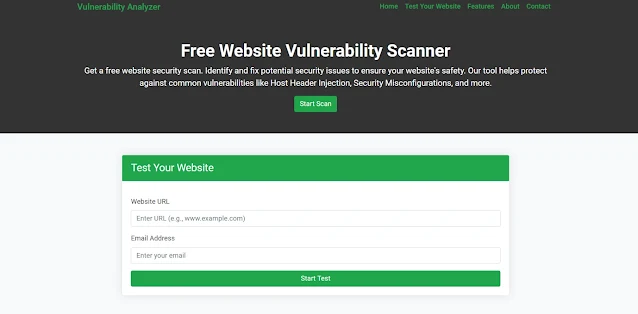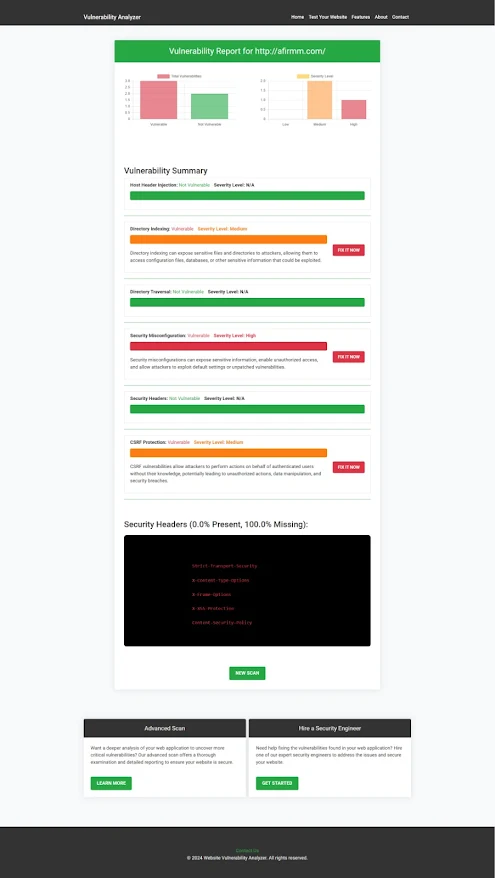Remote Code Execution (RCE) in Laravel: A Critical Threat and How to Address It
In today’s interconnected world, cybersecurity threats are growing at an alarming rate. One such critical vulnerability is Remote Code Execution (RCE). This blog will explore RCE in Laravel applications and demonstrate how to identify and mitigate it using our free Website Security Scanner.
What is Remote Code Execution (RCE)?
RCE allows attackers to execute malicious code on a server, leading to compromised data, server control, or even total application breakdown. Laravel, being one of the most popular PHP frameworks, can be a target if not properly secured.
Understanding RCE with a Laravel Example
Here’s a simple code snippet that showcases how vulnerable code could lead to RCE in Laravel:
// Vulnerable Code
Route::get('/execute', function (Request $request) {
eval($request->input('code'));
});
How to Fix This Vulnerability
To prevent RCE, never execute unvalidated user inputs. Use Laravel's built-in validation mechanisms:
// Secure CodeRoute::get('/execute', function (Request $request) {
$code = $request->input('code');
if (in_array($code, ['allowed_function1', 'allowed_function2'])) {
return $code();
}
return response('Unauthorized action.', 403);
});
This approach ensures only pre-approved functions are executed, blocking malicious inputs.
Detect RCE Vulnerabilities with Our Free Tool
Our free Website Security Checker simplifies vulnerability detection. It scans your Laravel application for security flaws, including RCE risks.
Example: Using the Tool
Take a look at the screenshot below to see how our tool detected an RCE vulnerability on a sample Laravel site:
 |
| Scan results showing detected vulnerabilities, including RCE issues. |
Generate a Detailed Vulnerability Report
After scanning your site, you can download a detailed vulnerability assessment report. Here's an example:
 |
| Example report highlighting RCE risks and suggested fixes. |
Conclusion: Secure Your Laravel Applications Today
RCE vulnerabilities in Laravel can have devastating consequences if left unaddressed. Use secure coding practices and tools like ours to test website security free to safeguard your application. Start your security journey by scanning your website for vulnerabilities now!
For more tips and tools, visit Pentest Testing Corp.
%20in%C2%A0Laravel.jpg)



Comments
Post a Comment